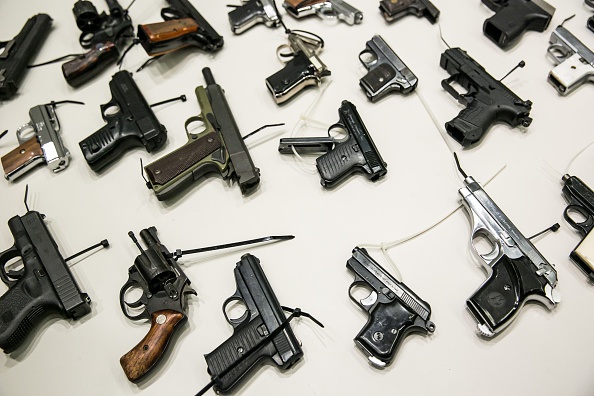
Draft legislation on movement of weapons in the offing
A draft Legislative Instrument (LI) that will determine the approved weapons that can be imported or transited through the ports of Ghana to other countries has been prepared by the National Commission on Small Arms and Light Weapons.
The LI will cover a comprehensive and elaborate list, known as the national control list, in line with the enforcement of the provisions of the Arms Trade Treaty (ATT).
Advertisement
The Arms Trade Treaty (ATT) is a multilateral treaty that regulates the international trade in conventional weapons, which was adopted by the United Nations (UN) General Assembly on April 2, 2013 and came into force on December 24, 2014.
Ghana is one of 94 states that have ratified the treaty. Forty-one other states are yet to ratify it.
Implementation
At a stakeholders’ engagement in Accra organised by the Commission on the ATT, it emerged that Ghana signed the treaty on September 24, 2013 and ratified it two years later.
The treaty came into force on March 22, 2016 after the country had deposited its instrument of ratification with the UN on December 22, 2015.
A senior programme officer at the Commission, Mr Johnson Asante-Twum, said the draft LI had been submitted to the Ministry of the Interior and was expected to be forwarded to the Cabinet and subsequently to Parliament.
To make it easy for the LI to be reviewed, he explained that it would not be attached to any parent law of Ghana.
Dual usage
The ATT schedule officer for Ghana, Mr Leonard Tettey, explained that the LI, when adopted, would prohibit and subject the importation of some substances and chemicals including weapons to strict authorisation.
Those items have been put in seven categories comprise all military weapons, industrial explosives, biological agents, chemical agents, nuclear agents, cluster munitions such as air-dropped or ground-launched explosives prohibited under the cluster munitions convention, anti-personnel landmine convention and implements under the conventional weapons convention.
“This means that the importation and use of certain items would be restricted for only the security services,” he said.
The items would be subjected to review annually for which a technical committee has since been put in place to oversee that, after which the list would be shared with the rest of the world.
Some materials which have dual usage such as fertilisers and jammers are currently controlled by some state agencies such as the National Communications Authority (NCA) and the Ministry of Food and Agriculture and cannot be moved to the national control list.
Report
In compliance with Article 22 (2) of the ATT, Mr Tettey said Ghana was to submit its initial report on measures taken to implement the ATT before March 27, 2017 followed by annual reports by May 13 each year.
States are also required to assess the potential that the arms exported would contribute to or undermine peace and security or could be used to commit or facilitate serious violations of international humanitarian or human rights law, acts of terrorism or transnational organised crime.




